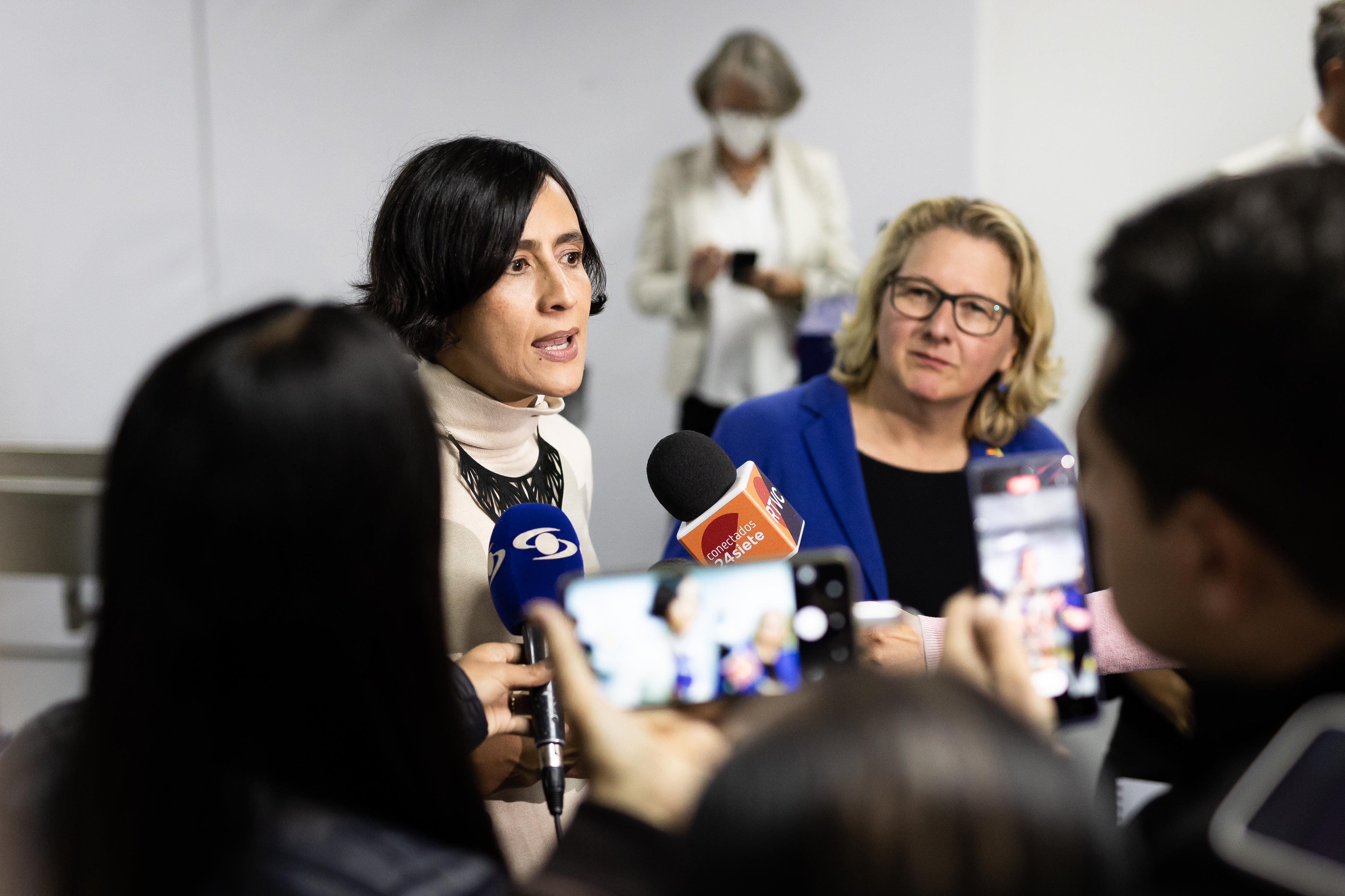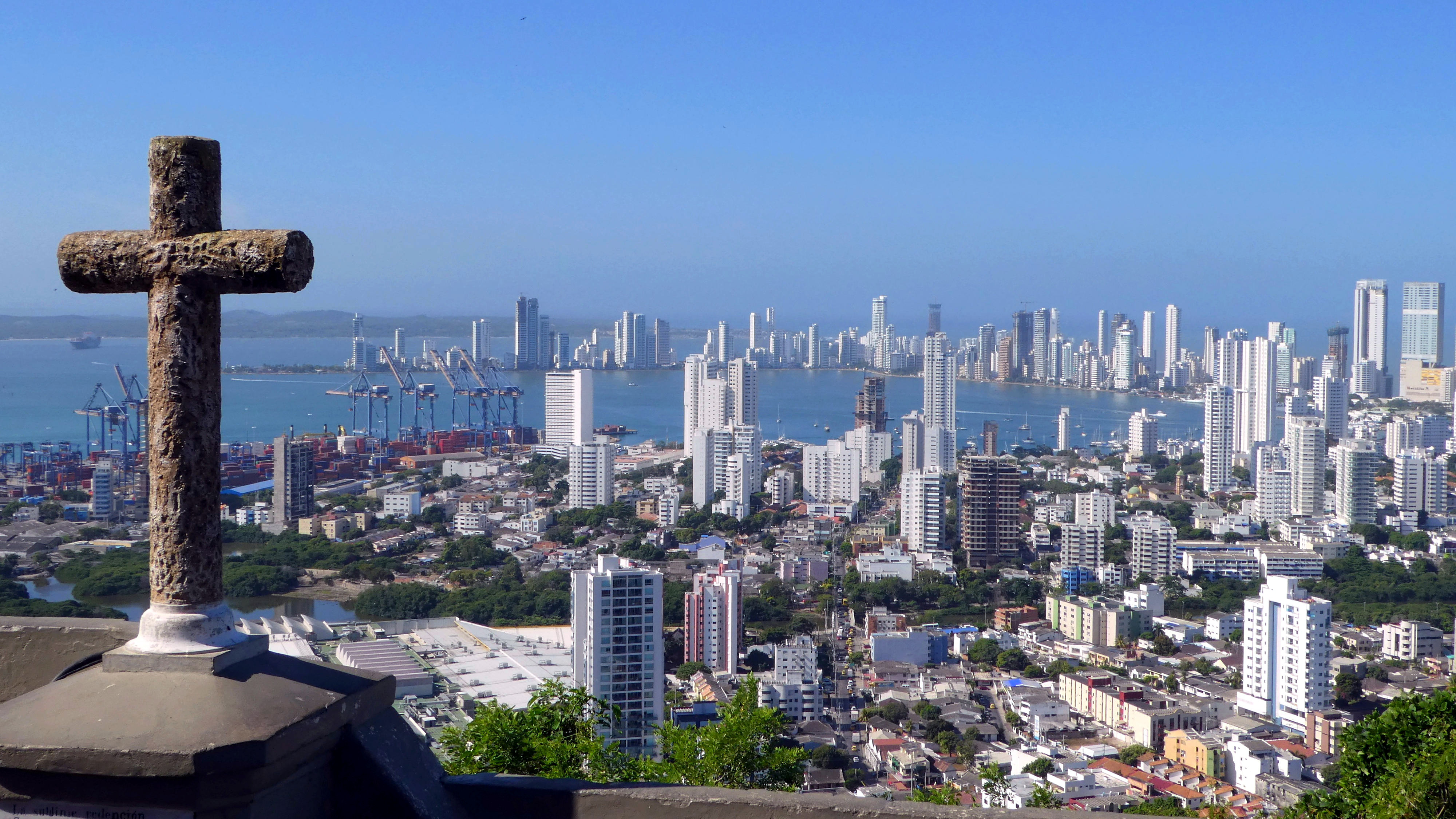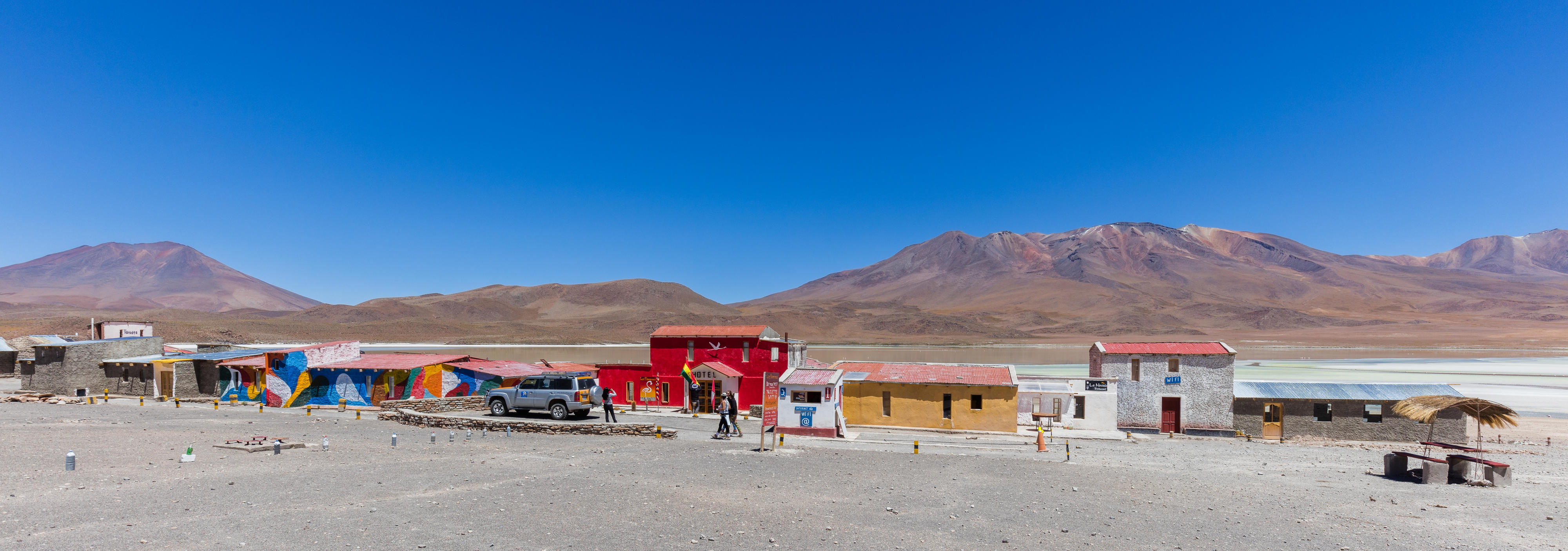Partners for climate action and women’s rights
Minister Svenja Schulze is visiting Colombia and Bolivia
Colombian Environment Minister Susana Muhamad and Development Minister Svenja Schulze in conversation with journalists
The Minister’s visit will start in Bogotá, the capital of Colombia, where she will be the first member of the German government to meet with representatives of President Gustavo Petro’s newly elected government. Germany is supporting the peace process in Colombia and is helping the country deal with the challenge of displacement and migration. The cooperation portfolio also includes protecting the rainforest and sustainable urban development.
Svenja Schulze says: “The central focus of our partnership with Colombia continues to be supporting the peace process in the country. Stable peace is the only way to create a basis for sustainable development. We are supporting the rights of disadvantaged people, including women and members of the LGBTQ community. Instead of being the victims of violence, we want for them to become agents of reconciliation. I am pleased that the newly elected President Petro has already sent an important signal in this regard by appointing equal numbers of men and women to his cabinet. Another topic is supporting the integration of migrants from Venezuela.”
In addition, together with Colombia’s Environment Minister Maria Susana Muhamad González, Minister Schulze will visit a circular economy laboratory that is being supported by Germany. The aim of the German involvement here is not only to increase Colombia’s low recycling rate of less than 12%, but also to improve the situation of waste pickers; there are 25,000 of them working in Bogotá alone. Likewise on the programme are a visit to a shelter for newly arrived refugees and migrants, and a meeting with members of the truth commission for the implementation of the peace agreement with the rebel organisation FARC.
The Minister will then travel to Bolivia, where she will meet with representatives of the government and of civil society in La Paz and El Alto. In addition to that, she will visit a protected area in the Amazon rainforest that Germany is supporting: the Madidi National Park is so far the only area in Latin America being supported through the Legacy Landscapes Fund founded by the BMZ.
Svenja Schulze says: “We want to work with Bolivia on intensifying the efforts to protect the Amazon and we want to continue our joint efforts in the field of renewable energy. Bolivia has set itself ambitious goals for expanding the use of renewable energy and wants to double the share of solar and wind energy in the next few years. We want to continue supporting these ambitions. In addition, in the Madidi National Park I will be meeting with members of the indigenous communities, with park rangers and with engaged members of civil society. Managing protected areas is not without challenges – together we want to work on solutions in order to make even more out of their potential for the environment and also for the people living from and with the rainforest, since the only way that efforts to protect nature can succeed is if the local population is involved.”
Bolivia is one of the most biodiverse countries in the world, but it also has the third-highest deforestation rate. Via the Legacy Landscapes Fund, the BMZ is involved in protecting the Madidi National Park. In this park a unique ecosystem covering nearly 19,000 square kilometres is being protected – that is an area almost half the size of the Netherlands. By working with the Legacy Landscapes Fund, the Park is able to secure long-term basic funding from public and private sources, giving the Park management the planning security that it so urgently needs. This support is being used to improve the monitoring of the protected area and also to pursue strategies for sustainable tourism and for the participation of the local population.



